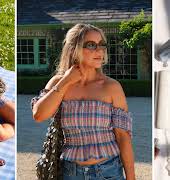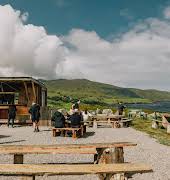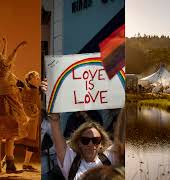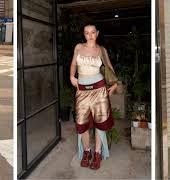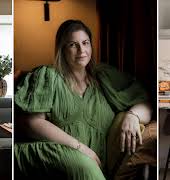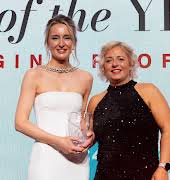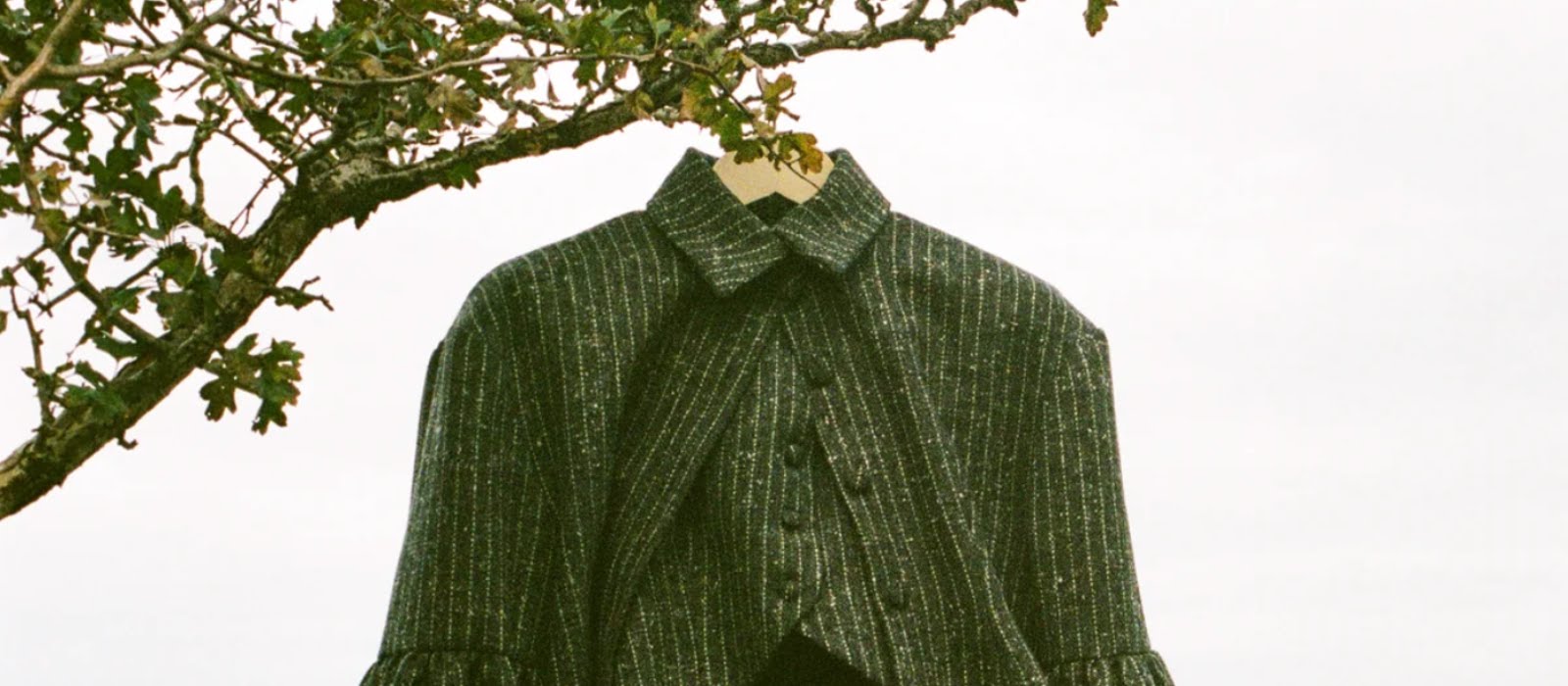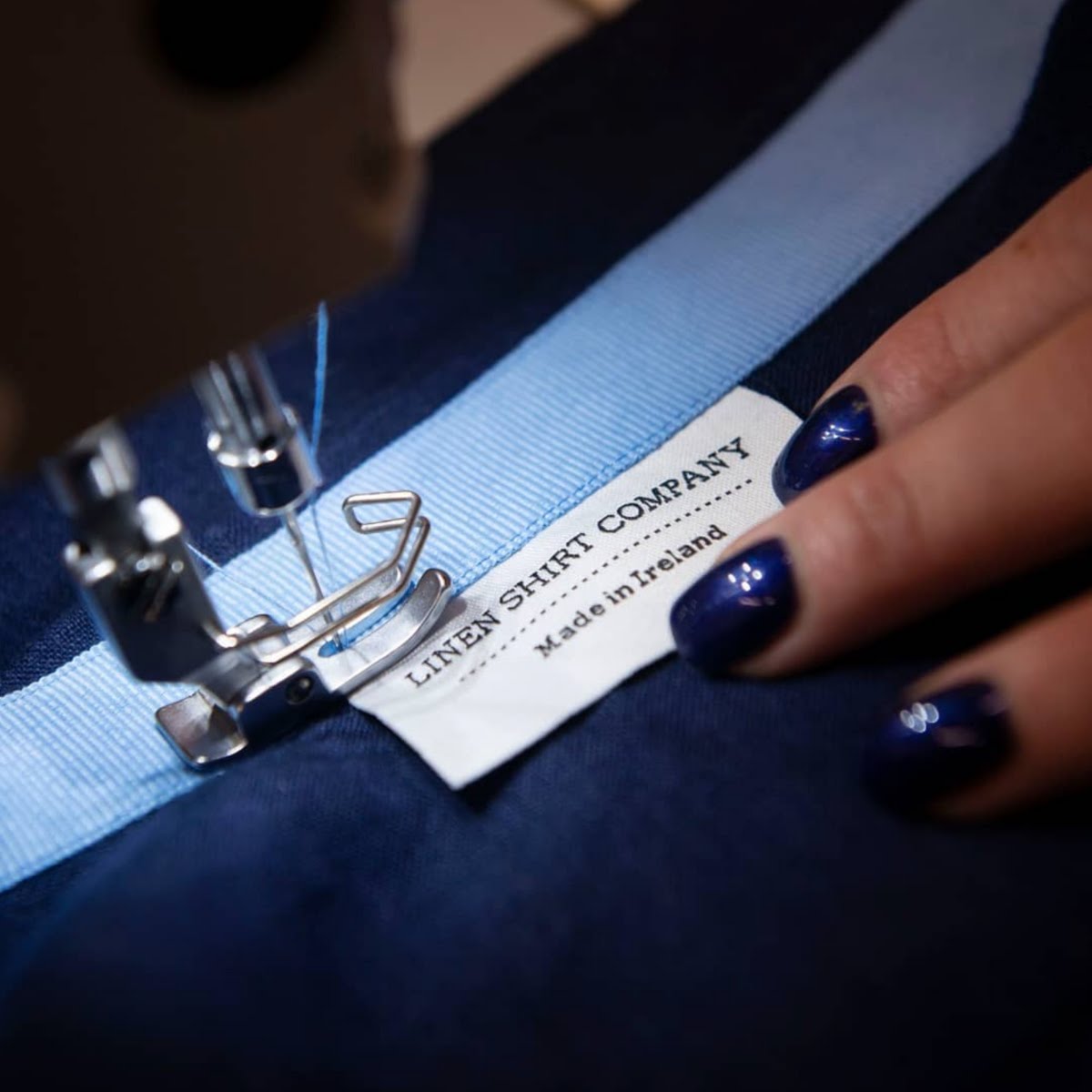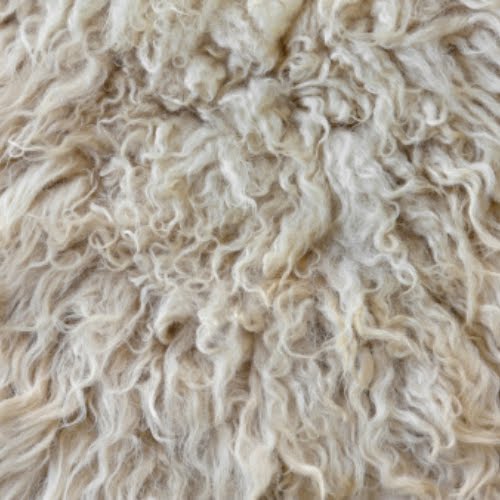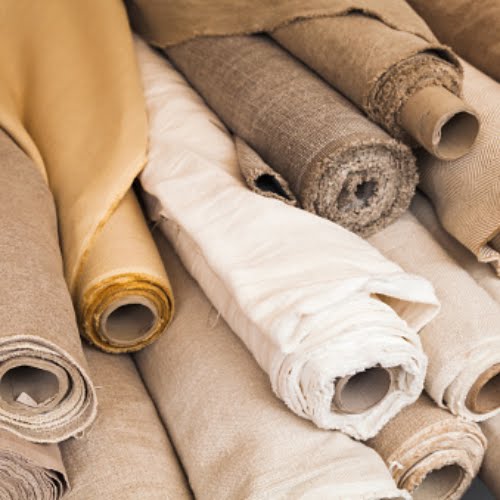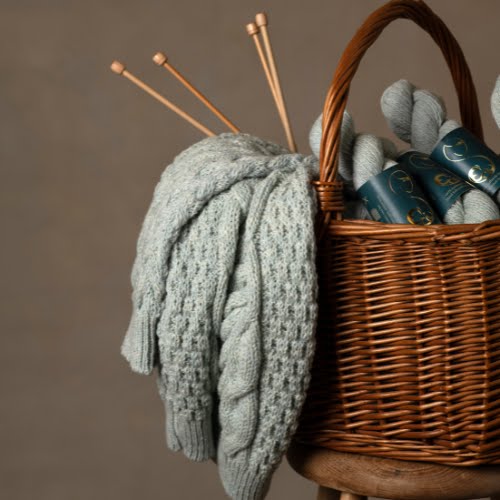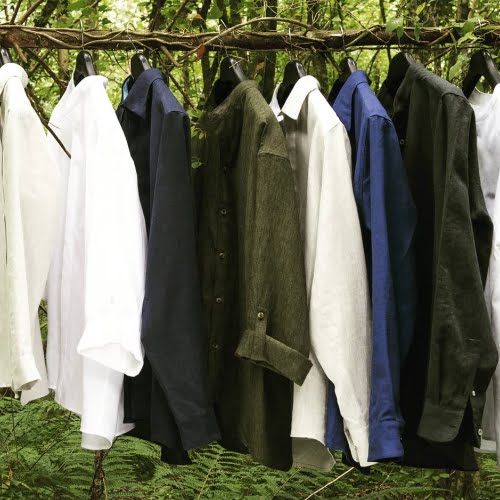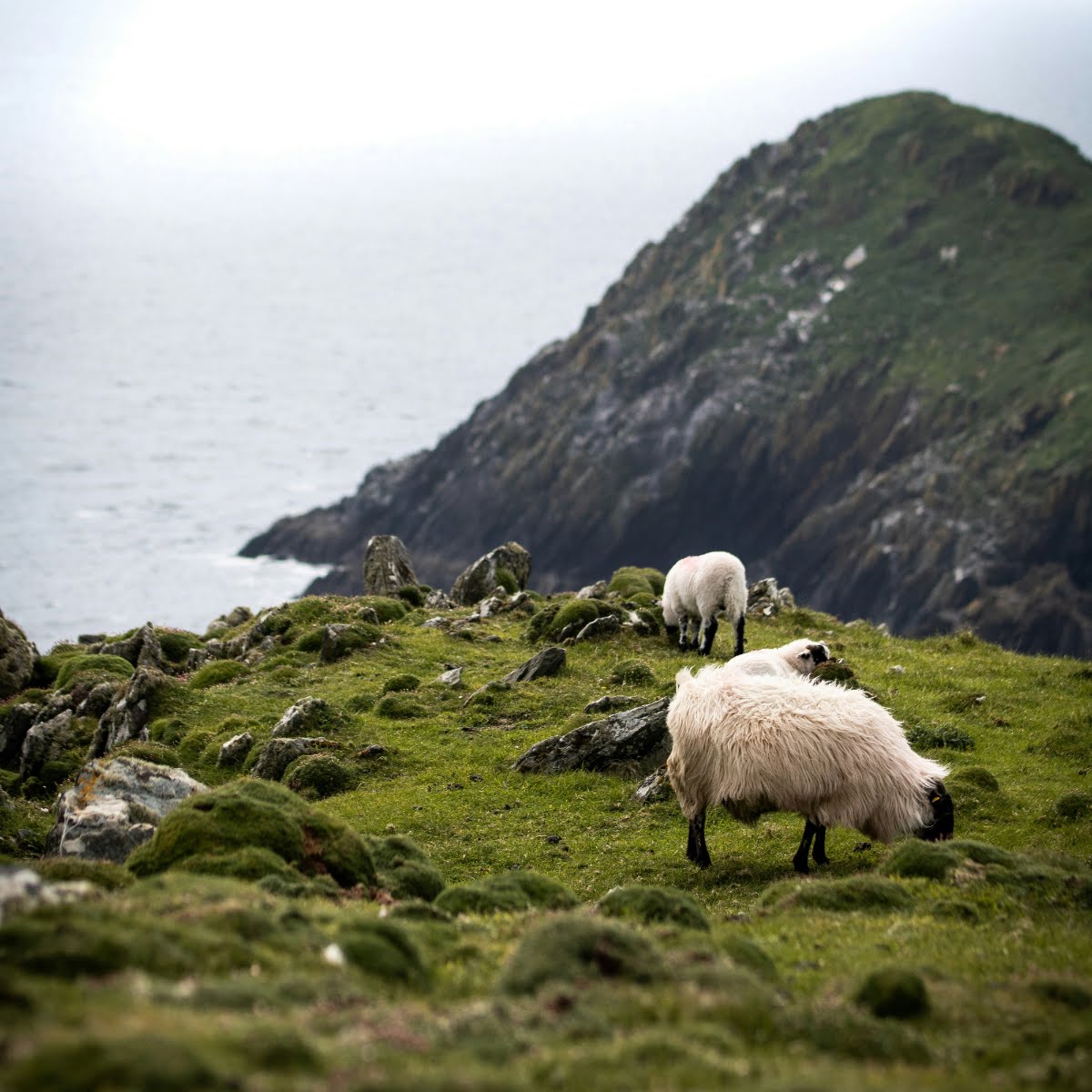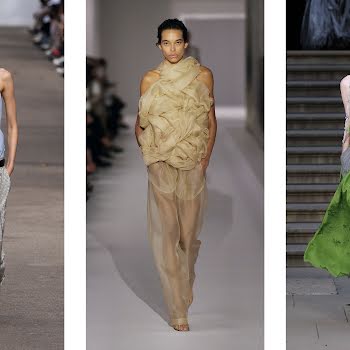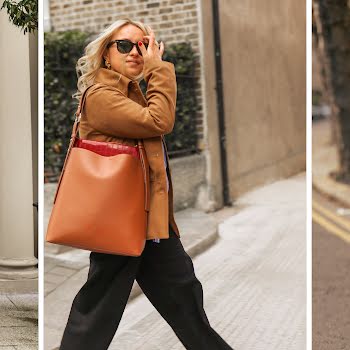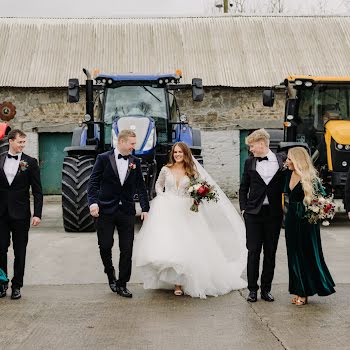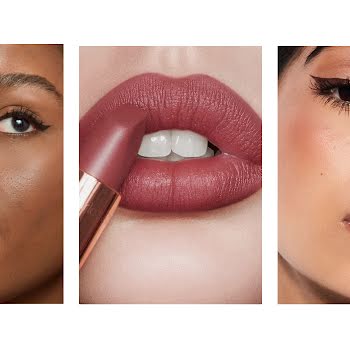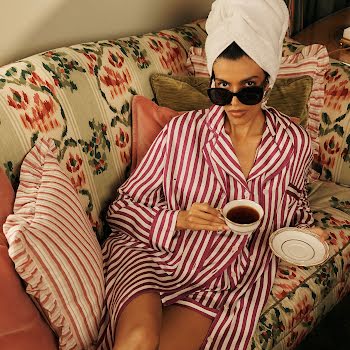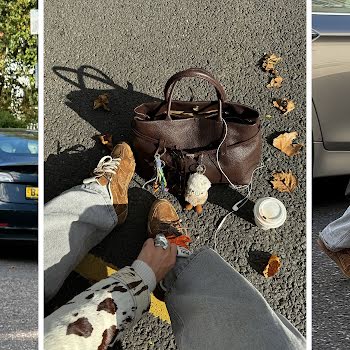
A new type of fashion industry is beginning to emerge in Ireland, one that retains its history of craft and skill while harnessing a forward-thinking, sustainable vision for the future.
STYLE | Future of Fashion
words Ruth O’Connor
Once a small-scale cottage industry with a rich history in fabrics and intricate patterns but not exactly en vogue, Ireland’s homegrown clothing industry has evolved in recent years. Customers are moving away from top-line trends towards high fashion, bespoke pieces with an emphasis on local fabrics and textiles. But its future remains unclear.
Sustainability is set to be a key metric in the industry’s survival. According to official EU statistics, the consumption of textiles in the region, most of which are imported, accounts for the fourth-highest negative impact on the environment and the third-highest negative impact on water and land use from a global lifecycle perspective. Every year around 5.8 million tonnes of textiles are discarded in the EU (approximately 11kg per person) and every second, somewhere in the world, a truckload of textiles is landfilled or incinerated. With that in mind, we spoke to three mavericks in the vanguard of industry who are making positive change towards a more sustainable fashion future.
Raw materials
Many brands are returning to traditional textiles, yet sourcing local raw materials is far from straightforward – take wool for example. Former documentary researcher Zoë Daly is the founder of Ériu and the designer of beautiful items made from wool sourced from farmers here in Ireland. While this might not sound radical, the vast majority of wool used to produce Irish knitted and woven goods is actually sourced from abroad – a revelation to Daly and one that set her and her partner, Wicklow farmer Lionel Mackey, on a path to reinvigorate Irish-grown wool.
“As a former researcher I fell in love with the story of Irish wool and its tragedy… we used to be world leaders in wool and exported it across the globe,” says Daly. “The small number of farmers and handspinners I met told me about the downfall of the industry, and their passion made me determined to follow this story.” Together, she and Lionel founded Éiru.
For years there has been an impression that Irish wool is not suitable for clothing – that it is too coarse – but Daly says this need not be the case with Ériu’s luxury blend of wool from Romney and Blue-Faced Leicester breeds: soft with a wonderful lustre and drape. They’ve also created a farm-to-yarn network across Ireland that offers farmers ten times the standard rate for their fleeces, which is then spun by Donegal Yarns. While they make their own products, Ériu also produces a yarn available for other brands or knitters to use.
While there is bound to be resistance to publicising the fact that much Irish wool is not, in fact, the product of Irish sheep, there are those who are keen to celebrate what Daly is doing. She was recently awarded the coveted Design & Crafts Council Ireland Award at the craft and design trade fair, Showcase.
“The narrative that we have encountered is that Irish wool is worthless, but we have proved that that is not the case. It’s about asking how do we all value something that is handsourced, that supports a fair trade network, that is reinvigorating an ancient legacy? A fine food that is made from organic ingredients by a Michelin star chef is not the same as food from McDonald’s – that is the difference between what we do and fast fashion.”
While Ériu’s products are investment pieces, with a price tag that reflects that, they are designed to last a lifetime. “Our products are fully traceable and we value each of the hands our products pass through – that’s why they come in at a premium price point. As a mum myself I can’t always make a sustainable choice every time, but we invite people to make the sustainable choice where possible, and to consider what it is that we place value on when it comes to our clothes.”
Production
Another key area is the need to nearshore the manufacturing arm and transition to a green economy with an emphasis on Irish-made products. This requires locally sourced materials, but also the skills to do something with them.
Founder of the Linen Shirt Company and a third-generation clothing producer in Kilkenny, Anneliese Duffy has recently turned her focus to reestablishing the Made in Ireland tag. Growing up on the factory floor, Duffy always felt that Ireland had a proud manufacturing history but that the Made in Ireland brand had been decimated and the role of skilled sewing machinists undervalued.
“It’s unfair that machinists, who are the real talent behind a brand, do not have any formal accreditation for the skill they acquire over a long period of time. Where designers have the opportunity to get a degree or a diploma, machinists, even if they’ve been working in the industry for 30 years, have no piece of paper to certify their skills or industry qualifications,” she says. “I feel very strongly that we as an industry should be supporting the idea of a Made in Ireland brand, and the more clothes we can make here the better it will be for this brand.”
Duffy founded Fashion Connect Ireland, an impressive manufacturing facility in New Ross, Co Wexford, which opened last November. It has a Cut, Make, Trim (CMT) production space where she can produce apparel for other brands, offering them shorter production runs, quicker turnaround times and fewer air miles.
It also hosts a 17-week programme which has been certified by Education and Training Boards Ireland (ETBI) and which trains machinists to operate at industry level. “The biggest gap we could see was the skills gap in manufacturing. It’s about supporting the individual to become employed in the industry, yes, but by doing this we can also support the needs the industry has in order to grow.”
Governance
The final thread solidifying a sustainable fashion future is governance. Duffy believes that the EU Strategy for Sustainable and Circular Textiles and incoming Digital Product Passports will force brands to be more transparent about where, how and by whom products are made. She also believes that an onus should be put on retailers to sell fewer, better quality clothes and that there should be a different VAT rate applied to clothes made in Ireland versus imported clothes.
Opting to look at her business holistically, Aoife McNamara spent a year working to earn B Corp status, which verifies a business’ high standards of social and environmental performance, transparency, and accountability.
“I wanted to do something that actually means something and that is not just a buzzword, something that is not just handed out to everyone,” she explains of her decision to go for B Corp, which she received at the end of 2023 – the first Irish fashion brand to do so. “Something that involves a deep dive into every aspect of your business. Going through the process opened my eyes to how thorough you have to be – it’s not just about what your business is doing, it’s also about what your suppliers or manufacturers are doing.”
Despite the intensive process to earn B Corp status, and the continual work needed to retain it – McNamara’s business will be reassessed again in three years time – she hopes to see other companies follow suit. “I would love to see more businesses incorporating sustainability into everything they do, but I also realise how challenging it is. For me, big change will only really happen when it happens at government level,” she says. “I’m not sure how much real change will be implemented unless people are forced to do it – imagine the change that could be made if every business had to go through a process similar to the B Corp process.”
Such a system would potentially be much easier for start-ups than for existing businesses. “If a framework was in place when people were starting up their businesses, it would make it so much easier for them to adopt sustainable practices from the beginning.”
Positive change relies on buy-in from us all – from the legislator to the consumer and everyone in between. If fashion designers can design with circularity in mind from the outset, if we can return material sourcing and production from overseas to our own shores, if we can encourage an indigenous manufacturing industry to flourish once again and if we have stakeholders leading the charge, there is a real chance that Ireland’s fashion future will be a greener one.
As Duffy, one of the Irish fashion industry’s hardest grafters puts it, “We need to build on the momentum of supporting Irish brands that developed during the pandemic. The consumer showed us that there is an appetite for Irish products – now it is up to us to give consumers what they want.”
This article originally appeared in the Spring 2024 issue of IMAGE.

IMAGE Summer 2024
The Summer issue of IMAGE is here, and we’re taking the longer days as an opportunity to slow down, take stock, and luxuriate in the lull that summer brings. From laid-back looks to in-depth reads, there’s everything you need to set you up for the season. Plus: * Warm-weather style * Boho is back * In studio with Irish designer Sinéad O’Dwyer * Career success stories * Growing and foraging * Women in music * Reframing divorce * Tackle your tiredness * Summer beauty favourites * Bringing the outdoors in * Irish eco escapes * Garden getaways * and so much more…
Have you thought about becoming an IMAGE subscriber? Our Print & Digital subscribers receive all four issues of IMAGE Magazine and two issues of IMAGE Interiors directly to their door along with access to all premium content on IMAGE.ie and a gorgeous welcome gift worth €142 from Skingredients. Visit here to find out more about our IMAGE subscription packages.


